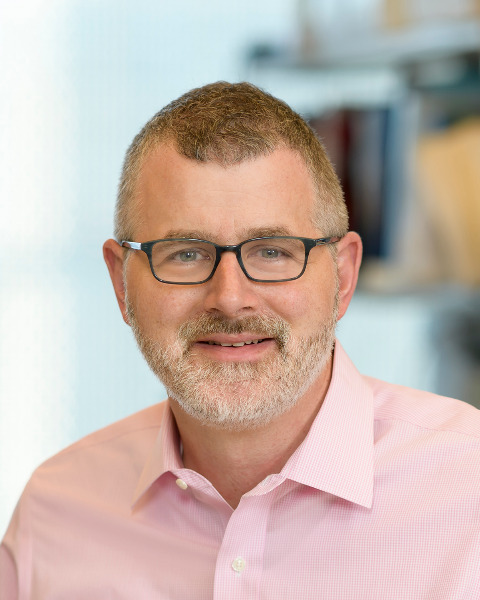
Tobias M. Hohl, MD, PhD
Chief, Infectious Disease Service
Memorial Sloan Kettering
Disclosure(s): No financial relationships to disclose
As the Chief of the Infectious Disease Service at Memorial Sloan Kettering Cancer Center, I conduct laboratory research on human fungal pathogens, in particular Aspergillus fumigatus, Candida albicans, and Cryptococcus neoformans. Invasive fungal infections by these pathogens represent a significant cause of infectious morbidity and mortality in immune compromised patients, in particular patients with leukemia, lymphoma, and in bone marrow transplant recipients.
The primary focus of my research program is to decipher the molecular and cellular basis of sterilizing immunity against A. fumigatus, the major causative agent of invasive aspergillosis (IA). Our efforts rely on innovative, fluorescence-based tools to trace fungal cell uptake and killing by host leukocytes and to monitor fungal physiology with single event resolution in the lung.
Recently, we adapted this technology to discover that host leukocytes trigger regulated cell death (RCD) in inhaled Aspergillus conidia, the infectious propagules. Aspergillus (as well as other human fungal pathogens) encode an anti-cell death protein, Afbir1p, a druggable target. Fungal RCD regulators, exemplified by Afbir1p, can counter host NADPH oxidase-dependent induction of fungal RCD. Our studies demonstrate that vertebrate hosts exploit regulated programmed cell death pathways in fungal cells as a mechanism of sterilizing immunity at mucosal surfaces.
A second focus of investigation relates to the role of monocytes and their derivatives in innate antifungal immunity. To this end, we developed transgenic mouse lines that (a) label monocytes with GFP, (b) enable inducible monocyte ablation, and (c) facilitate conditional gene targeting in monocytes and descendent cells. With these tools, we demonstrated that CCR2+ monocytes form essential antifungal effector cells during respiratory and systemic fungal infections. Current work focuses on characterizing innate cell crosstalk in which lung-infiltrating monocytes initiate the recruitment of plasmacytoid dendritic cells (pDCs) to sites of infection. In turn, pDCs augment the fungicidal capacity of monocyte-derived DCs and neutrophils to promote fungal clearance. Thus, our work identifies monocytes and plasmacytoid DCs as novel innate effector cells against filamentous molds.
A third focus of investigation centers on the role of endogenous fungal communities in the gut on infectious outcomes during allogeneic hematopoietic cell transplantation (allo-HCT) in human patients. We established high-throughput amplicon-based and whole-genome sequencing and bioinformatic analyses to characterize the composition and diversity of intestinal fungi in human samples. Our findings indicate that stochastic intestinal translocation of gut-resident fungi into the human bloodstream causes invasive mycoses in allo-HCT patients. The intestinal fungal repertoire is shaped by receipt of antibiotics and cross-kingdom interactions with gut-resident bacteria. We are exploring the rules of this ecologic niche in humans and mouse models, with an emphasis on understanding the molecular mechanism that enable establishment of invasive fungal disease.
I am mentoring and have mentored 12 post-doctoral and clinical fellows, 4 graduate and medical students, and 6 undergraduate students. My trainees have successfully applied for extramural support, including a Life Science Research Foundation and a NIH K08 Award, and four women trainees have secured tenure-track faculty positions (C. Fischer, MD, Univ. of Washington, Seattle, WA; L. Heung, MD, PhD, Cedars-Sinai Medical Center, Los Angeles, CA; N. Shlezinger, PhD, Hebrew University, Rehovot, Israel; B. Zhai, PhD, Institute of Synthetic Biology, Shenzhen, China). I am the co-Chair Elect of the Gordon Research Conference on the Immunology of Fungal Infections and President of the New York Chapter of the Infectious Disease Society of America.
My research efforts have been recognized by a Young Investigator Award from the American Society of Microbiology (2009), by election to Fellow in the Infectious Disease Society of America (2012) and the American Academy of Microbiology (2021), and to Member in the American Society of Clinical Investigation (2016). In 2014, I received an Investigator in the Pathogenesis of Infectious Diseases Award from the Burroughs Welcome Fund.
Poster(s):
-
Friday, October 18, 202412:15 PM - 1:30 PM US PTSaturday, October 19, 202412:15 PM - 1:30 PM US PT
